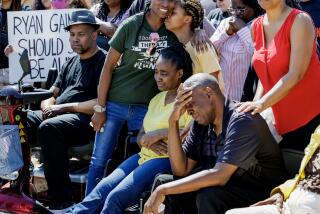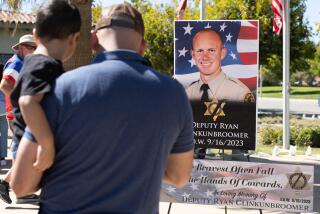Giving honor to life and dignity at Grand Junction hospice
After Ryan Fiegel fell into a coma in the wake of a brain tumor in February, his parents made the tough decision to take him off his ventilator.
But Ryan, 26, didn’t die; he didn’t wake up either.
The Fiegels decided they wanted Ryan’s last days to be at Grand Junction’s community hospice, the Hospice and Palliative Care Center of Western Colorado.
He had received excellent care at St. Mary’s Hospital and Medical Center, but it was uncomfortable to be in the scurry and stress surrounding a place where staff was trained to do everything to fight death.
So they made the decision with doctors there to move Ryan to the hospice.
“They cautioned us that he might not even survive the trip, but he did,” Bob said. “The hospice had a phenomenal staff and he actually survived at the hospice 10 days.”
The stay at hospice, built with local fundraising, cost a fraction of what it would have cost for Ryan to remain in the hospital. That’s one way in which Grand Junction produces high-quality healthcare, but at one of the lowest costs in the nation.
The Fiegels say they never felt that their son was anywhere but in the best possible place for him to be. No one ever pressured them to move him to the hospice.
“At a hospital, it’s really hard on the staff when they lose a patient, because they are taught to fight” against death, Bob said. “At the hospice, we were where the specialists were.”
Ryan’s room was large, and like every room at the Hospice and Palliative Care Center of Western Colorado, had a second door leading to a patio. It had plenty of room and plenty of bathrooms for family members, so more than a half dozen relatives slept there every night.
“That’s when we started the healing, we really did,” Kay said
In all, some 300 friends came by to say their good-byes to Ryan, including co-workers and managers from Sam’s Club, where Ryan had been a cashier for seven years.
“The whole time we lived there, we celebrated Ryan’s life,” Kay said. “We watched movies on the flat-screen TV, we tried to make the most of it … of a very difficult thing. It was a cocoon of love.”
Ryan first developed a brain tumor when he was 13, survived chemotherapy, surgery and radiation, did well enough that after high school he was able to get a job at Sam’s Club.
A more aggressive brain tumor was found early last year.
Kay’s niece wanted to say good-bye to Ryan, too, even though she was scheduled to be married in a few weeks. So, at the hospice, the family helped fill out the wedding invitations and watched her get fitted for her wedding dress, with Ryan, still in a coma, just a few feet away.
He died March 12.
“Because we had time to say our goodbyes, and because his friends had time to say their good-byes, we recognized that Ryan had made a difference in a lot of people’s lives, not just in ours,” Kay said. “We got three beautiful letters those last weeks, telling us that he was a good guy and a wonderful human being.”
--
Bill Scanlon’s reporting on this package of stories was funded by The California Endowment Health Journalism Fellowships.
More to Read
Inside the business of entertainment
The Wide Shot brings you news, analysis and insights on everything from streaming wars to production — and what it all means for the future.
You may occasionally receive promotional content from the Los Angeles Times.










